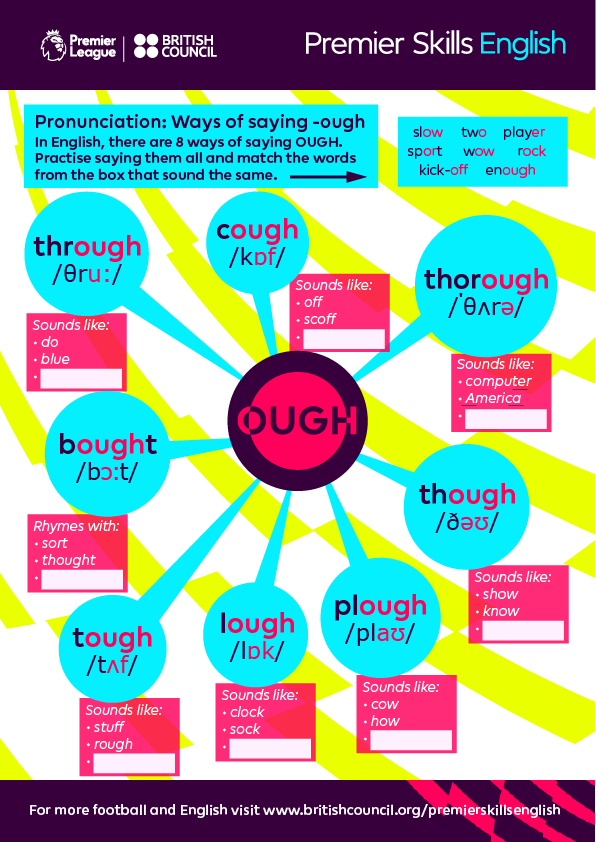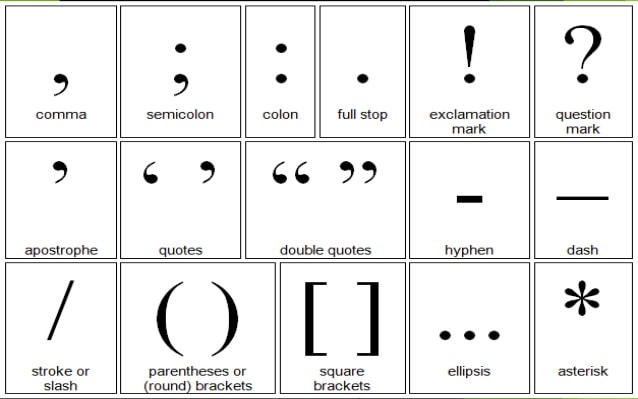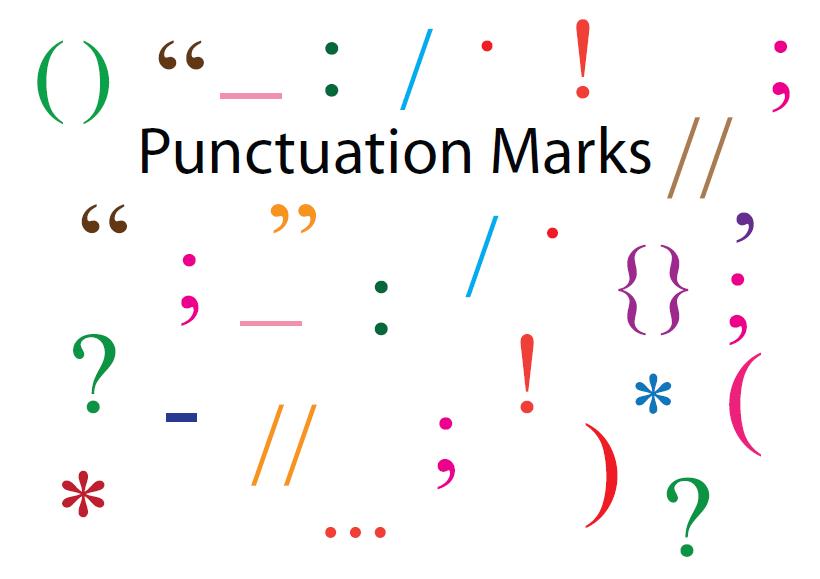|
Best view with full screen.
Si consiglia la visione a schermo intero.
For those of you who are considering studying English, here's an interactive presentation I created that explains the first basic elements of the language. Click on the arrows to scroll left and right. Click on the headings in the "difficult" part to get more information.
Per voi che state considerando di studiare l'inglese, ecco una presentazione interattiva che ho creato per spiegare i primi elementi base della lingua. Clicca sulle frecce per scorrere a sinistra e a destra. Clicca sulle intestazioni nella parte "difficile" per avere maggiorni informazioni.
1 Comment
Sotto trovate la traduzione dell'articolo Without a doubt, compared to Latin languages, English grammar is much easier. Adjectives and nouns have no gender, there is no polite form and apart from a few 'irregular' verbs, verb endings are easy, and hardly change. The difficulties start with pronunciation. English is not a pure language and many words come from different sources and are not pronounced as they are spelled. This is why much emphasis must be put on listening and speaking skills, right from the start. A great example of how English pronunciation can be challenging is superbly represented in this episode from the famous television series from the 1950s "I love Lucy". Lucy and her husband Riccardo are expecting a baby. Riccardo is Cuban and not a native English speaker but he claims that he would have no problem whatsoever to read bedtime stories in English to his newborn. Lucy puts him to the test with the different pronunciations of "ough". Did you know that there are 8 different pronunciations of "OUGH"? Below is a handy chart made by the British Council to practise the different ways of saying "OUGH". LA PRONUNCIA E' TUTTO!
Senza dubbio, paragonata alle lingue latine, la grammatica inglese è molto più facile. Gli aggettivi e i sostantivi non hanno genere, non esiste la forma cortese (“Lei”) e, con l’eccezione di qualche verbo irregolare, le desinenze verbali sono facili e cambiano poche volte. Le difficoltà dell’inglese iniziano con la pronuncia. L’inglese non è una lingua pura e molte parole provengono da fonti diverse e non si pronunciano come sono scritte. Ecco perchè bisogna dare molta enfasi allo sviluppo delle competenze di ascolto (“listening”) e di parlato (“speaking”), fin dall’inizio dello studio della lingua. Un esempio eccezionale di come la pronuncia in inglese può essere impegnativa è rappresentata in maniera esemplare in questo episodio della serie televisiva degli anni 50 "I love Lucy". Lucy e suo marito aspettano un bambino. Riccardo è cubano e non è di madre lingua inglese ma sostiene che non avrebbe nessun problema a leggere storie della buonanotte in inglese al futuro neonato. Lucy lo mette alla prova con le diverse pronunce di "OUGH". Lo sapevate che esistono ben 8 pronunce diverse di "OUGH"? Sotto trovate una tabella pratica della British Council per esercitare i diversi modi di pronunciare "OUGH". Surprisingly, English and Italian share a lot of similarities in vocabulary. But not all words that are similar mean the same thing. Over the course of history, the English language became latinized and it's been estimated that around 40% of its vocabulary is rooted in Latin. This explains why sentence structure in English is more similar to the Latin languages than to Germanic languages, of which English is part. Consequently, Italian and English share words with Latin roots and a group of these words is called "False Friends". A "False Friend" is a word which is pronounced and spelled in a similar way to a word in another language but with a totally different meaning. False Friends can be difficult and confusing and the only way to learn them is to memorize them. Some common English "False Friends" that are confusing for students are: - actually (adv.) - to pretend (v.) - annoying (adj.) - factory (n.) - currently (adv.) - sensible (adj.) - eventually (adv.) - to frequent (v.) - morbid (adj.) - library (n.) - educated (adj.) - preservative (n.) - fabric (n.) - gently (adv.) I find that the number one false friend that is used the most erroneously is "actually". At the top of this text is a BBC Learning video that explains the uses of "actually". Happy studying everyone! Traduzione del testo
Sorprendentemente, l'inglese e l'italiano condividono molte somiglianze nel lessico. Ma non tutte le parole simili significano la stessa cosa. Nel corso della storia, la lingua inglese è diventata latinizzata ed è stato stimato che circa il 40% del suo vocabolario ha radici nel latino. Questo spiega perché la struttura delle frasi in inglese è più simile alle lingue latine che alle lingue germaniche, di cui l'inglese fa parte. Di conseguenza, l'italiano e l'inglese condividono parole con radici latine e un gruppo di queste parole si chiama "False Friends". Un "False Friend" è una parola pronunciata e scritta in modo simile a una parola in un'altra lingua, ma con un significato totalmente diverso. I "false Friends" possono essere difficili e creare confusione e l'unico modo per impararli è memorizzarli. Alcuni "falsi amici" inglesi comuni che confondono gli studenti sono: - actually (adv.) - to pretend (v.) - annoying (adj.) - factory (n.) - currently (adv.) - sensible (adj.) - eventually (adv.) - to frequent (v.) - morbid (adj.) - library (n.) - educated (adj.) - preservative (n.) - fabric (n.) - gently (adv.) Trovo che il falso amico numero uno usato più erroneamente sia "actually". Nella parte superiore di questo testo c'è un video di BBC Learning che spiega l'uso di "actually". Happy studying everyone! It is estimated that more than half of the letters in the English alphabet are silent in some words. Unfortunately, there are no simple rules to explain or understand the meccanism of silent letters. To fully understand its complexity, here are a few interesting facts: - Many English words have roots in other languages, like French, Latin, Greek and German. - The spelling of some words are literally made up. - Written English has existed for hundreds of years and countless changes have been made in this time. - Some pronunciations have been copied from other languages. - Some letters, like the 'e', change the way you pronounce the other letters, e.g. 'hat' and 'hate'. Silent letters are hard for English students to learn and for English teachers to teach but, with steady speaking and listening practise, English pronunciation can be mastered! Below are two excellent videos from ELC 88 which explain, letter by letter, the silent letters. Definitely a must for learners who really want to learn silent letters! Testo in italiano
Si stima che più della metà delle lettere dell'alfabeto inglese sono mute in alcune parole. Sfortunatamente, non esistono regole semplici per spiegare o comprendere il meccanismo delle lettere mute. Per comprenderne appieno la complessità, ecco alcuni fatti interessanti: - Molte parole inglesi hanno radici in altre lingue, come francese, latino, greco e tedesco. - L'ortografia di alcune parole è letteralmente inventata. - L'inglese scritto esiste da centinaia di anni e in questo periodo sono state apportate innumerevoli modifiche. - Alcune pronunce sono state copiate da altre lingue. - Alcune lettere, come la "e", cambiano il modo in cui pronunci le altre lettere, ad esempio, "hat" e "hate". Le lettere silenziose sono difficili da imparare per gli studenti di inglese e da insegnare per gli insegnanti di inglese ma, con una pratica costante di ascolto e conversazione, è possibile padroneggiare la pronuncia inglese! Di seguito sono riportati due eccellenti video di ELC 88 che spiegano, lettera per lettera, le lettere silenziose. Sicuramente un must per gli studenti che vogliono davvero imparare le lettere silenziose! An English professor wrote the words: "A woman without her man is nothing" on the chalkboard and asked the students to punctuate it correctly. All of the males in the class wrote: "A woman, without her man, is nothing." All the females in the class wrote: "A woman: without her, man is nothing." PUNCTUATION IS POWERFUL! Traduzione del testo
Un professore d'inglese ha scritto le parole: "Una donna senza il suo uomo non è nulla" alla lavagna e ha chiesto agli studenti per inserire la corretta punteggiatura. Tutti i maschi della classe hanno scritto: "Una donna, senza il suo uomo, non è nulla." Tutte le donne della classe hanno scritto: "Una donna: senza di lei, l'uomo non è nulla". LA PUNTEGGIATURA È POTENTE! I have been using Grammarly for many years now. I consider it my personal proofreader for everything I write in English. It really is an exceptional app. Grammarly is not your usual spell checker. And it's not only a grammar checker. It's much more than that! Grammarly is a writing app developed by world-class linguists. It not only highlights grammar mistakes but it gives explanations for them. It finds and fixes grammar, spelling and punctuation errors. It also helps you with word order and style. It is literally a second pair of eyes to check your writing! And it's free!!! I highly recommend it! Grammarly - Better writing, better results! Sotto trovate la traduzione in italiano Uso Grammarly da molti anni. Lo considero il mio correttore di bozze personale per tutto ciò che scrivo in inglese. È davvero un'app eccezionale.
Grammarly non è il solito correttore ortografico. E non è solo un correttore grammaticale. È molto più di questo! Grammarly è un'app di scrittura sviluppata da linguisti di livello mondiale. Non solo evidenzia gli errori grammaticali, ma fornisce spiegazioni per essi. Trova e corregge errori di grammatica, ortografia e punteggiatura. Ti aiuta anche con l'ordine delle parole e lo stile. È letteralmente un secondo paio di occhi per controllare la tua scrittura! Ed è gratis !!! Lo consiglio vivamente! Grammarly - Scrittura migliore, risultati migliori! Body language says a lot about who you are even before you speak. If you are afraid of not being able to express yourself effectively in English, you must know that body language is an excellent tool to start breaking the ice and build up your speaking confidence. The elements of body language to exploit when expressing yourself in English are: smiling, eye contact and expressiveness. Smiling to people makes them more willing to be polite, to listen to you and to help you in the conversation. Good eye contact is key to establishing a conversation and mutual trust. Not making eye contact with the person you are speaking to appears rude and it will only make you more insecure when speaking. Finally, expressiveness, which comes so natural to Italians, makes the comprehension easier and the conversation more interesting and pleasant. Take advantage of your body language and you will see that in time it will become a precious and essential tool when speaking English! In this video from the 70s entitled "One Word Responses", the two actors are capable of carrying on an entire conversation based on one word responses. They prove that they are able to interact, understand eachother and feel emotions using very little spoken language and much expressiveness. Remember: body language is important! Enjoy the video! Translation in Italian Il linguaggio del corpo dice molto su come sei come persona, ancora prima di parlare. Se hai paura di non poterti esprimere efficacemente in inglese, sappi che il "body language" è un'ottima arma per iniziare a rompere il ghiaccio ed acquisire sicurezza di sé nel parlare.
Gli elementi del "body language" da sfruttare quando vuoi esprimerti in inglese sono il sorriso, il contatto visivo e l'espressività. Porgersi alle persone con un sorriso li rende più disponibili ad essere cortesi, ad ascoltarti e ad aiutarti nella conversazione. Il contatto visivo è fondamentale per instaurare una conversazione e una reciproca fiducia. Non guardare il proprio interlocutore negli occhi risulta scortese e ti renderà solo più insicuro nel parlare. Infine, l'espressività, che fra l'altro è una dote naturale degli italiani, facilita la comprensione e rende la conversazione più interessante e piacevole. Sfruttate il vostro "body language" al meglio e vedrete con il tempo che diventerà un vostro strumento prezioso ed indispensabile quando parlate in inglese! In questo video degli anni '70 intitolato "One Word Responses", i due attori sono capaci di portare avanti un'intera conversazione basata su risposte di una parola. Dimostrano che riescono ad interagire, capirsi e provare emozioni utilizzando pochissimo linguaggio e molta espressività! Ricordate: il "body language" è importante! Buona visione! Trovate sotto la traduzione in italiano Many foreign students of English have already studied the language at school. In most cases, they are not satisfied with the English they studied in middle and high school. Many people express their frustration about having studied English for many years but not being able or being too embarrassed to speak it. Let’s face it, in the school system, where attendance averages between 20 and 30 students per class, it is impossible to work efficiently on listening and speaking skills for each student. That is why the study of the English language in the school system is based more on developing writing and reading skills, grammar and translation, all which can be done collectively and help keep the class under control. This more academic approach does have an extremely positive aspect! Expressing yourself well in English means you know the grammar! Good grammar makes good sentences and good sentences make good speaking! I have always admired and been surprised by Italian students of English for their preparation and knowledge of English grammar. With grammar studied at school, you already have the basic language you need! This allows you to keep your main focus on your listening and speaking skills and you can brush up on grammar when needed. Another important consideration is this: English is everywhere! That’s undeniable! Words in English are found everywhere: on product names (“Fresh & Clean”, "light", "shopping"), on TV (“share” & “audience”), on Internet and social media (“post”, “chat”, “messenger”, “app”, "follower"), in sports (“corner”, "goal"), at work (“meeting”, “forecast”) and in music of course. The list goes on and on! Many people are really not aware of it but through music, work and social media they actually know many words in English and they are already quite familiar with its sounds and pronunciation. In conclusion, your present knowledge of the English language (good or bad) is your initial asset, and an incentive to start studying it again and reach e good level. Dr. Spock used to say: “Trust yourself. You know more than you think you do.” I always tell my students: “Trust yourself. You know more English than you think you do!” SAI PIU’ INGLESE DI QUELLO CHE PENSI!
Molti studenti d’inglese hanno già studiato la lingua a scuola. Spesso hanno un ricordo mediocre o pessimo di come hanno studiato l’inglese, specialmente alle medie e alle superiori. Molte persone esprimono la loro frustrazione per aver studiato l’inglese per molti anni ma di non essere capaci o di vergognarsi di parlarlo. Siamo sinceri. Nel sistema scolastico, con classi frequentate da una media di 20/30 studenti, è molto difficile sviluppare efficacemente le capacità di ascolto e parlato di ciascun studente. Ecco perchè lo studio dell’inglese nelle scuole si basa soprattutto sullo sviluppo delle competenze di lettura, scrittura, grammatica e traduzione, attività che possono essere svolte collettivamente e che aiutano a tenere la classe sotto controllo. Questo approccio più accademico ha, però, un aspetto molto positivo! Esprimersi bene in inglese significa conoscere la grammatica! Ho sempre ammirato e sono stata piacevolmente sorpresa dagli studenti italiani per la loro preparazione e conoscenza della grammatica inglese. Con questo aspetto già approfondito a scuola, hai già la base linguistica di cui hai bisogno! Questo ti permette di focalizzare maggiormente sulle competenze di ascolto e di parlato, ripassando la grammatica quando è necessario. Un’altra considerazione da fare è questa: l’inglese è dappertutto! E’ innegabile. Ormai, parole in inglese si trovano ovunque: sui nomi di prodotti (“Fresh & Clean”, "light", "shopping"), in televisione (“share” & “audience”), su Internet e i social media (“post”, “chat”, “messenger”, “app”, "follower") nello sport (“corner”, "goal") e al lavoro (“meeting”, “forecast”), e nella musica ovviamente. La lista è lunga! Tante persone non ci fanno molto caso ma attraverso la musica, il lavoro e social media conoscono in realtà numerose parole in inglese e hanno già una notevole familiarità con i suoi suoni e con la pronuncia. La tua attuale conoscenza della lingua inglese (che sia buona o scarsa) è da considerare un patrimonio di inizio, e un incentivo per studiarlo di nuovo e raggiungere un buon livello. Come diceva il dottor Spock “Fidati di te stesso. Sai di più di quello che pensi.” Io dico sempre ai miei studenti: “Sai già più inglese di quello che pensi!”. A few months ago, while searching for some English videos on YouTube, I came across this video created by teacher Katka Chudovà who came up with a great idea for representing the system of basic English tenses through a visual description. In her video, Chudovà's mental picture of English and its tenses gradually come to life on the timeline of a movie. Life is like a movie and a movie needs a story which has a past, present and future. Thus the need for grammar to tell the story. For all of you visual learners, this video is a very original and brilliant way to improve your understanding of the English tenses. Enjoy the video! Qualche mese fa, mentre cercavo dei video in inglese su YouTube, ho trovato questo video realizzato dall'insegnante Katka Chudovà la quale ha avuto una grande idea per rappresentare il sistema dei tempi verbali in inglese attraverso una descrizione visiva.
Nel video di Chudovà, l'immagine mentale dell'inglese e dei tempi verbali prendono gradualmente forma su una "timeline" di un film. La vita è come un film e un film necessita di una storia che ha un passato, presente e futuro. Ecco quindi il bisogno della grammatica per raccontare la storia. Per coloro che amano l'apprendimento visivo, questo video è un modo veramente sorprendente e originale per meglio comprendere i tempi verbali in inglese. Buona visione! Sotto trovate la traduzione in italiano Queen recorded the song "We are the Champions" in 1977 for the album "News of the World". It immediately became a concert favorite and is, without a doubt, one of the most iconic songs in music history. Most people are familiar with the lyrics in the refrain: "We are the champions, my friend. And we'll keep on fighting till the end. We are the champions, we are the champions. No time for losers 'cause we are the champions...... of the world." Many people are not familiar with the lyrics in the verses and many English students don't know that the two verses of the song are a treasure trove of verbs conjugated in the Present Perfect. The Present Perfect has different functions and one of them is to express life experiences. In fact, in "We are the Champions" Freddie Mercury expresses his experiences using the Present Perfect tense 8 times. He talks about: - his life challenges (I've paid my dues, I've done my sentence, I've had my share of sand kicked in my face), - his ups (I've taken my bow and my curtain calls) - his downs (it's been no bed of roses) - his mistakes (and bad mistakes, I've made a few). - overcoming it all (I've come through) "We are the Champions" is considered a sports anthem but its message goes far beyond that and is for all of us to keep in mind. Every time life throws us to the ground we're going to get right back up and keep on fighting till the end because WE are the champions! Here below is the video of just the lyrics. I Queen registrarono la canzone "We are the Champions" nel 1977 per l'album "News of the World" Diventò immediatamente una delle canzoni preferite durante i concerti ed è, senza dubbio, una delle canzoni più iconiche della storia della musica.
Molte persone hanno familiarità con il testo del ritornello: "Siamo i campioni, amico mio. E continueremo a lottare fino alla fine. Siamo i campioni, siamo i campioni. Non c'è tempo per i perdenti perchè noi siamo i campioni ...... del mondo". Molti non hanno invece familiarità con il testo nelle strofe e molti studenti di inglese non sanno che le due strofe della canzone rappresentano un tesoro nascosto di verbi coniugati al Present Perfect. Il Present Perfect ha diverse funzioni ed una di esse è quella di esprimere le esperienze di vita. Infatti, in "We are the Champions" , Freddie Mercury esprime le sue esperienze usando il tempo Present Perfect 8 volte. Parla di: - le sue sfide nella vita (ho pagato i miei debiti, ho scontato la mia pena, ho avuto la mia parte di sabbia buttata in faccia) - i suoi alti (mi sono inchinato al pubblico, sono stato chiamato al sipario e applaudito) - i suoi bassi (non è stato un letto di rose, cioè non è stato facile) - i suoi errori (di errori ne ho commessi diversi) - il superamento delle difficoltà (ce l'ho fatta, ho superato) "We are the Champions" è considerato un inno sportivo ma il suo messaggio va ben oltre quello e dobbiamo tenerlo in mente. Tutte le volte che la vita ci butta a terra ci rialzeremo subito e continueremo a lottare fino alla fine per NOI siamo i campioni! |
Categories
All
Autrice
Archives
December 2020
© 2017-2023 bmyenglishteacher.com
|








 RSS Feed
RSS Feed
